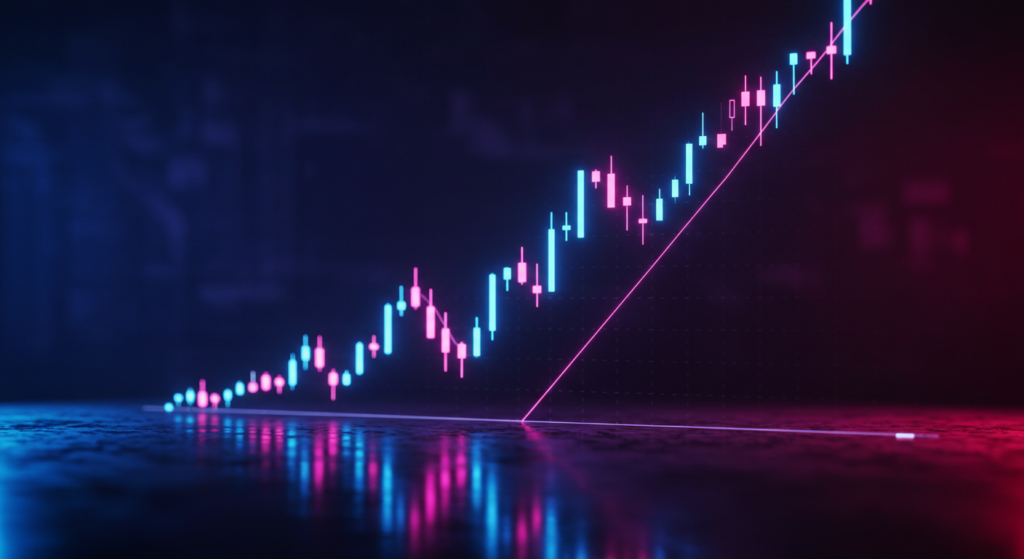
There’s a moment every trader knows well—that split second before clicking buy or sell, where instincts and strategy collide. The charts are telling one story, the headlines another, and deep down, there’s a gut feeling whispering a third. Do you trust the data? The market? Yourself?
Trading isn’t just about numbers. It’s about psychology, resilience, and staying sharp when everything else is in motion.
In a world that moves at lightning speed, traders aren’t just analysts; they’re decision-makers. They navigate shifting trends, manage risks, and anticipate the unexpected. But success isn’t about being right all the time—it’s about knowing how to adapt, how to stay focused, and how to play the long game without burning out.
The Market Never Sleeps—But You Should
It’s easy to fall into the trap of constant vigilance. Refreshing the charts one more time before bed. Checking price alerts over breakfast. Watching global markets unfold in real-time, always trying to stay one step ahead.
But here’s the truth: the best traders aren’t the ones who spend the most time staring at screens—they’re the ones who know when to step away.
Burnout is real, and in trading, it’s costly. A fatigued mind makes impulsive decisions, hesitates at the wrong moments, and struggles to see the bigger picture. The market rewards those who can analyze without emotion, act without desperation, and trust in a well-built strategy.
Setting boundaries isn’t a weakness—it’s a power move. The sharper your mind, the stronger your trades.
The Fine Line Between Confidence and Overconfidence
There’s a reason trading is often compared to poker. It’s not about winning every hand—it’s about knowing which hands to play. The best traders aren’t reckless, but they also don’t hesitate when they see an opportunity.
Confidence is built through experience and preparation. It’s not about taking wild risks but about trusting a system that’s been tested and refined. Overconfidence, on the other hand, is when past wins lead to shortcuts, when risk management slips, and when the belief in “being right” overshadows the reality of a changing market.
A great trader knows this: Every win is just as important as every loss. Both teach lessons. Both shape the next decision.
Adaptability is the Name of the Game
Markets evolve. What worked six months ago might not work today. The difference between an average trader and a great one is the ability to adapt without abandoning strategy.
Some traders lock themselves into rigid rules, refusing to shift when conditions change. Others chase every new strategy, never mastering one before moving on to the next. The balance? A solid foundation with the flexibility to pivot.
Great traders stay informed, but they don’t let the noise dictate their moves. They follow trends but don’t blindly chase them. They know their edge and refine it constantly.
Mastering the Mental Game
No amount of market knowledge can compensate for a weak mindset. Trading is a game of patience, discipline, and emotional control. Fear and greed are the two biggest enemies, and the ones who last in the industry are the ones who learn to keep both in check.
The reality? Losses happen. Even the best traders take them. The key is how you respond.
Do you revenge trade, trying to win back what was lost? Do you freeze, afraid to pull the trigger again? Or do you step back, reassess, and adjust?
The market doesn’t owe anyone a win. But it rewards those who stay level-headed, who manage risk like a pro, and who keep their focus on the bigger picture.
The Future Belongs to the Prepared
If there’s one thing successful traders understand, it’s this: consistency beats intensity. The ones who survive in this game aren’t the ones making the biggest bets, but the ones who show up, learn, refine, and execute with discipline.
It’s not about finding the perfect strategy. It’s about finding what works for you, testing it, improving it, and sticking with it.
The market will always move. There will always be another opportunity, another breakout, another shift. The question is: will you be ready for it?
Because in the end, trading isn’t about predicting the future—it’s about preparing for it.







